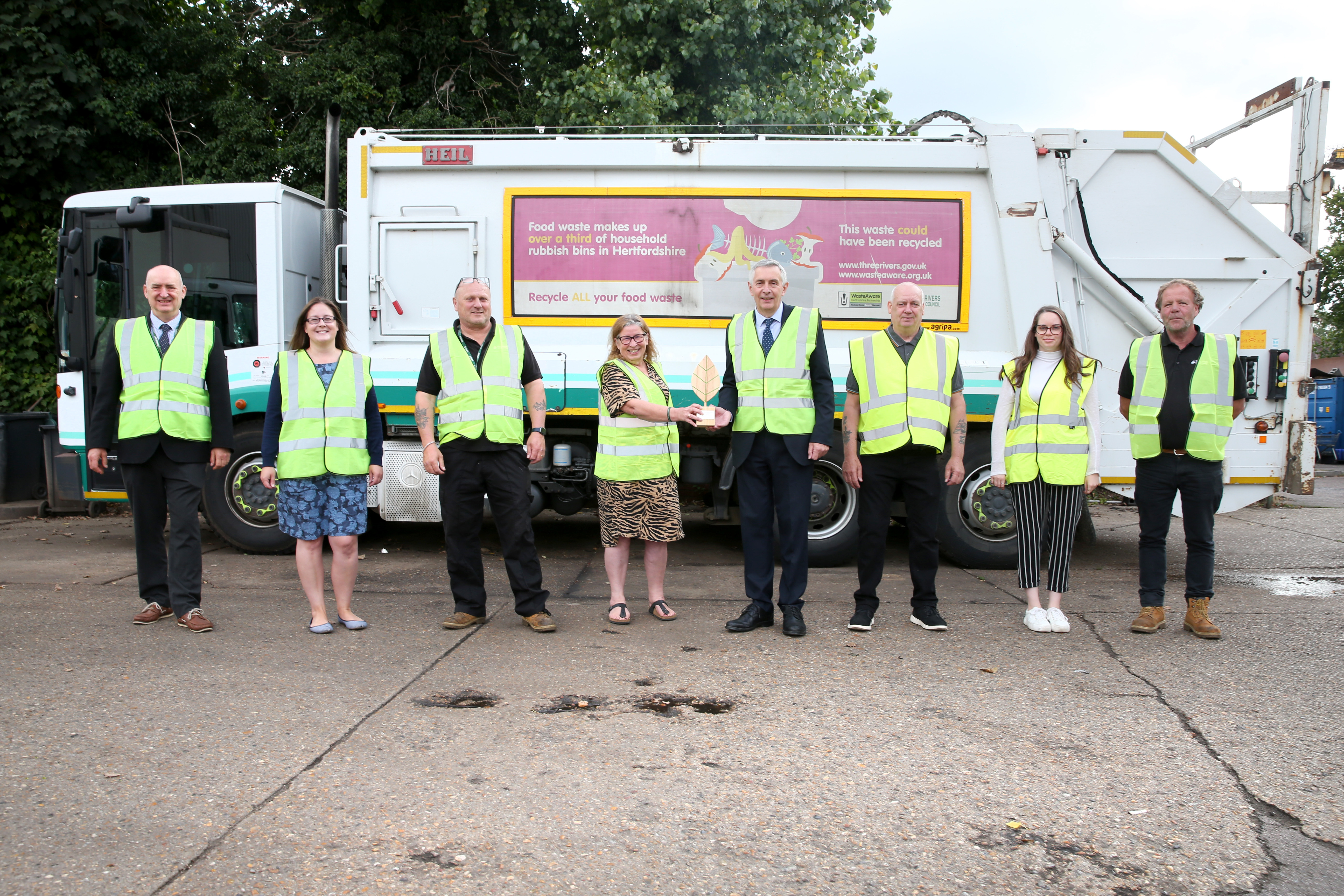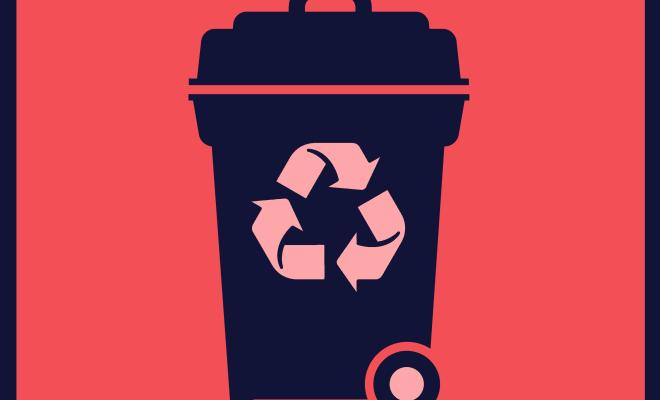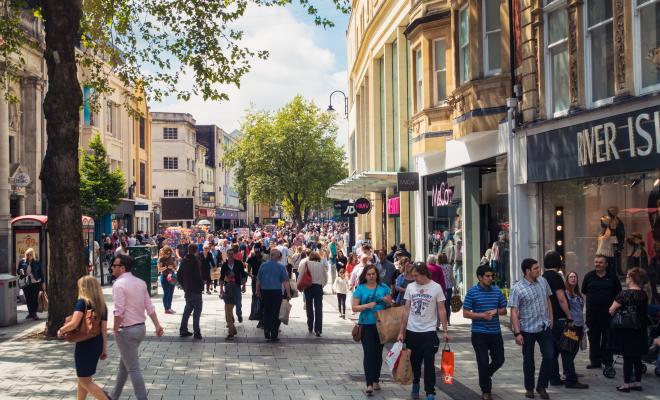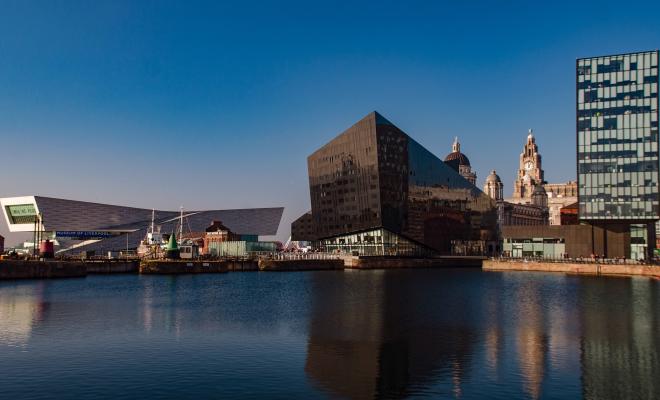20 Sep 2024
How is Action 36 tackling the climate crisis?
Waste is a climate issue due to the emissions caused by manufacturing products that are then thrown away, and due to the methane gases released at landfill sites.
The average household in Three Rivers generates around 1,000 kg of waste per year. However, due to the efforts of Three Rivers District Council, an impressive 61.5% of this waste is recycled. This was the joint highest rate in England for 2022/23, meaning the authority has continued to be at the top of English recycling rankings. The Hertfordshire council links its success to offering a wide range of recycling services, good communication with residents, and co-operation with neighbouring councils.
Simple, logical changes have improved Three Rivers’ recycling rates in recent years. Recycling and food waste are collected weekly, whereas non-recyclable waste is collected every fortnight in smaller 140-litre bins (the average wheelie bin used by councils is 240 litres). This has resulted in residents putting less rubbish in their general waste bins.
The council’s Local Plan also encourages new developments to minimise waste and optimise recycling by including accessible recycling systems as part of planning applications.
Three Rivers District Council has also gone beyond these basic steps. It operates a number of services for specialist waste items, including clinical medical waste collection, a reusable nappy discount scheme as part of the WasteAware group, and free home textiles collection.
An assisted collection service supports older residents and disabled people who can't take waste containers to the edge of their properties for collection. The council also offers talks and support on recycling and waste to schools and community organisations.
The council has further ambitions to cut waste in the area. It recognises that reducing, reusing and repairing are more effective ways to avoid sending waste to landfills or incineration than kerbside recycling collections alone. The council will therefore be moving towards a circular economy in its Climate Change and Sustainability Strategy.
What impact has the project had?
In 2007/08 Three Rivers’ recycling rate was 47%. Through the council’s efforts over the years, this rose to 61.5% in 2022/23, which was second highest in the league tables for English councils' recycling rates. South Oxfordshire District Council narrowly came first with 61.6%, just 0.1% ahead of Three Rivers.
Claiming the title of most prolific recyclers in England has been excellent publicity for the council, a cause for pride within Three Rivers that has enhanced the authority’s reputation.
The food waste collected in the district is converted into electricity and fertiliser at a local anaerobic digestion plant, contributing to renewable biogas energy generation and providing a secondary benefit from waste reduction and recycling.
What made this work?
- Quality communication
- Working collaboratively
- Clear messaging
- Bottom-up engagement
“Our staff prioritise recycling and composting, supported by residents who value resource conservation. Heightened awareness underscores the environmental impact of consumption and waste disposal. Together, we promote sustainable practices to minimise our ecological footprint.”
Councillor Jon Tankard, Environmental Services, Climate Change and Sustainability Lead at Three Rivers District Council
Improved recycling rates can't be achieved without getting residents on board. The council ensures residents have all the necessary knowledge to recycle everything possible via its clear and comprehensive online FAQs.
The council has found that small details give people the confidence to recycle properly. When residents understand the logic or processes behind an action, for instance why a certain item must be handled in a certain way, compliance improves.
Three Rivers District Council is an active member of the Hertfordshire Waste Partnership. Waste Aware, the public-facing element of the partnership, runs county-wide public awareness campaigns throughout the year. Instead of running their own resource-intensive awareness campaigns, multiple councils have worked in partnership. Working collaboratively across the county has been far more efficient and has improved consistency.
Visibility is key to these awareness campaigns. All waste initiatives are advertised on the side of refuse collection vehicles in the district, with bold, easy-to-understand messages.
Sustainable Three Rivers is a local volunteer group, established by residents, which promotes local climate action and hosts events to engage the wider community. The group has worked closely with the council, sharing the authority’s achievements on waste and recycling and advertising relevant council events. Three Rivers is implementing a strategy blending top-down changes and bottom-up engagement.
A consensual approach
The Three Rivers approach is consensual, not punitive. A small enforcement team deals with contamination issues when they do arise. The approach is always education first, and a reminder about what can and can’t be recycled.
Financial sense for the council and for residents
For the council, there are obvious benefits of a higher recycling rate, because it helps avoid overreliance on expensive and damaging waste treatments such as incineration. Becoming more waste aware has benefits for individuals too. For example, the council advertises the fact that using reusable nappies instead of disposables can save families up to £600 a year.
Three Rivers’ new behavioural campaign launched in late 2022. Worth Saving informs residents that throwing away food that could have been eaten can cost Hertfordshire households up to £720 a year and gives tips on how to avoid food waste. In turn, disposing of food waste costs the county £6 million annually, so the campaign should help save the council money too.
Linking recycling to the wider conversation on climate change
“Linking recycling to the climate change agenda has a big impact. Instead of just seeing it as sorting waste because the council told you to do it, telling people the impact that recycling and using less has on reducing your carbon footprint is more effective.”
Elen Roberts, Climate Change, Sustainability and Recycling Officer at Three Rivers District Council
The council found that events that are themed on waste and recycling alone don't appeal to residents. Linking recycling to the broader climate change agenda, or emotive issues like single-use plastic pollution in our oceans, is more likely to excite and engage people.
For example, the council’s climate change and waste and recycling teams jointly ran a pre-COP26 event in October 2021 which was attended by more than 300 people. This included a film screening, Q&A panel and a recycling stall.
High-quality collection crews
Having dedicated and skilful collection crews with a good understanding of the recycling system is critical to ensure bins are collected on time and contamination is avoided. Crews are the frontline, the people residents see out and about, and are therefore a key part of the recycling service.
Good data
In October 2020 a county-wide Waste Compositional Analysis was conducted throughout Hertfordshire. This gave clear figures on what people in Three Rivers were recycling well and what was still ending up as residual waste. Data enables an informed approach. If residents are successfully recycling a particular item, council messaging can omit this and target different items.
The Worth Saving campaign is a good example of this responsive, data-driven approach as it emerged from the 2022 Waste Compositional Analysis for Hertfordshire, which showed that 70% of the food thrown away in the county could have been eaten and was therefore preventable waste.
Demographic factors
Three Rivers is a green, wealthy rural area inhabited by families and older people. Many residents are environmentally conscious. They also have large gardens, and garden waste tonnage accounts for a significant proportion of the council’s waste, which augments its recycling rate. Urban environments with fewer private gardens don't have the same in-built advantages as Three Rivers. However, other factors listed here would be applicable to councils with different demographics wanting to increase their recycling rates.
What resources were needed?
Three Rivers District Council has created the role of Climate Change, Sustainability and Recycling Officer. Recycling services aren't entirely an outgoing expenditure, because the council charges for garden waste collection, meaning that the income received offsets some of the costs of that service. New replacement bins and refuse vehicles have been bought to keep up with the changes made to recycling.
Lessons from Three Rivers
All councils will have to increase recycling
All councils need to recycle more to meet the government’s target of a 65% rate for England by 2035, with no more than 10% of waste sent to landfills. In 2022/23, out of a total 333 English local authorities, only 5 had household waste recycling rates of 60% or higher, down from 7 in 2021/22. 67 authorities had recycling rates greater than 50%.
In addition, some councils oversaw an increase in waste being sent to landfills or incineration as an emergency response to manage the increased levels of household waste experienced during coronavirus lockdowns.
One reason for poor recycling is that, in England, many councils are locked into long-term waste incineration contracts, which often include minimum tonnage guarantees. These undermine the economic incentives to recycle, so councils with high incineration rates are more likely to have low recycling rates. UKWIN is a campaign group that can offer help for authorities to move away from incineration.
Separating waste is effective
A key lesson is that separating food and garden waste is a reliable way of increasing levels of food collected, thereby improving recycling rates.
National government action is needed
Three Rivers is convinced that higher levels of recycling are possible. But this will only be possible if manufacturers co-ordinate materials in production. This would also require UK government intervention in the form of regulation or tax incentives if authorities are to eliminate waste at a local level.
In 2018 the government published “Our waste, our resources: a strategy for England”. The strategy highlighted several waste initiatives, including a deposit return scheme and extended producer responsibility for packaging, but progress has since stalled. Collective advocacy by councils to lobby government for the long-term changes required must therefore be part of the long-term picture. The leader of Three Rivers District Council, Councillor Sarah Nelmes, has used her role as environment spokesperson for the District Councils Network to communicate demands directly to the Chair of parliament’s Environment, Food and Rural Affairs Committee.
“Councils are keen to plan their services to ensure that they can continue to play an active role in promoting a circular economy and reducing the overall amount of waste produced in order to continue leading the net zero agenda locally. However, without clarity from government on new service requirements, including what collections will be provided and where, councils are unable to plan how they will effectively deliver these new services.”
Councillor Sarah Nelmes, Leader of Three Rivers District Council
Useful information
To find out more, contact Elen Dolder.
Related projects
We've found some examples of other council activity on this topic.
- Other councils that have achieved high recycling rates include St Albans City and District at 64.2% and Pembrokeshire County at 72%.
- Devon County Council’s award-winning scheme invests savings made on treatment costs into improved collection services.
Friends of the Earth's view
Councils need to tackle emissions across all their functions including waste. It’s good that Three Rivers is aiming to follow up on its great recycling record with plans to cut waste in the area.
Councils can promote community sharing and reuse to help reduce waste and unnecessary consumption (Action 39 of the Climate Action Plan).
Friends of the Earth is showcasing specific examples of good practice in tackling climate change, but that doesn’t mean we endorse everything that a council is doing.
This case study was produced by Ashden and Friends of the Earth. It was originally published in March 2022 and was last updated in May 2024. Any references to national policy in this case study relate to policy under the previous government and reflect the policy context in which the council was operating at the time.





